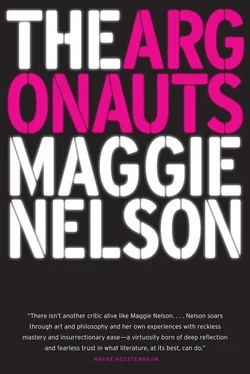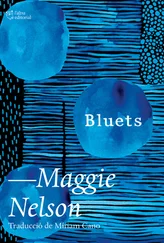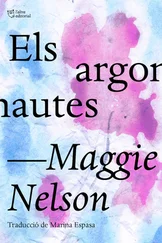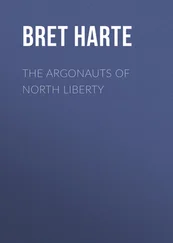When the New York Times ran a piece on your art in 2008, the editor said you couldn’t appear in their pages unless you chose Mr. or Ms. You’d been waiting your whole life for this kind of recognition; now here it was, but with this price. (You chose Ms. , “to take one for the team.”) Around the same time, your ex wouldn’t agree to a custody deal if you checked the box on the second-parent adoption forms that said “mother,” but you couldn’t by law check the box that said “father.” (I judged you then for not having adopted your first son at birth, which would have obviated this torturous second-parent adoption process; to my surprise, I find that now I, too, am unwilling to undertake such a proceeding, vis-à-vis Iggy — I’d rather gamble on national LGBT legal momentum and the relatively progressive state of California than pay $10,000 in legal fees and allow a social worker into our home to interview our children, to deem us “fit.”) When we visited your mother in the hospital, she would sometimes say how glad she was that her daughter was there with her; the nurses would then wheel around the room, looking for her. When we take Iggy to the doctor together now, the nurse always says how happy it makes her to see a father helping out with a baby. I’m certainly doing their team a lot of favors , you mutter. Conversely, there’s at least one restaurant we don’t go to anymore because the waiter had a Tourette’s-like addiction to calling everyone in our family “ladies” every time he so much as deposited a bottle of catsup at our table. He thinks we’re all girls , my stepson would whisper to us in bemusement. That’s OK — girls are very, very cool , you would tell him. I know , he would say back.
In your early thirties, you went on a hunt for your birth mother. You didn’t have much to go on, but eventually you found her: she was a newly sober leather dyke — quick, articulate, tough around the edges. One of the first things she told you was that she had worked as a prostitute in Nevada. You offered her some probable excuses; she cut you right off, saying she liked the work, and if you got it, use it . During your first phone conversation, you asked about your birth father; she sighed, “Oh honey, I’m just not sure.” But when you met her for lunch at a Chili’s, upon seeing you approach, she exclaimed, “It was Jerry!” She said you looked just like her other child, whose father was Jerry. She had frosty gray hair and wire spectacles, wore lipstick and wide-bottom linen pants. She told you her father (your natal grandfather) had just died and left her a little money, with which she was fixing up a craftsman in San Jose with her on-again, off-again butch lover.
All she told you then about Jerry was that he was “not a nice person.” Later she said he was violent. She said she wasn’t in touch with him anymore — the last she’d heard was that he was living on an island off Canada with holes cut out of the armpits of his shirt, to air out his shingles. A few years later, she told you he had died. You never wanted to know more.
Your birth brother, who was raised by his father, has long been an addict — in and out of prison, on and off the streets. He wrote you once from prison, in a style that uncannily echoed your own — the same careening prose, shot through with a meticulousness, a darkness, a hilarity. The last time she heard from him, your birth mother tells us, he had been found unconscious in a parking lot, covered in blood. Once he came to, he called her collect; she didn’t accept the charge. She threw up her hands as she told us this story, saying, I didn’t have the money! But we also heard her saying, I can’t carry him anymore .
You had your last drink at twenty-three. You already knew.
It can be hard not to know much about one’s parents. But, you tell me, it can be awesome too. Before you had thought much about gender, you attributed your lifelong interest in fluidity and nomadism to being adopted, and you treasured it. You felt you had escaped the fear of someday becoming your parents, a fear you saw ruling the psyches of many of your friends. Your parents didn’t have to be disappointments or genetic warnings. They could just be two ordinary people, doing their best. From a very young age — your parents had always been open about the fact that you were adopted — you remember feeling a spreading, inclusive, almost mystical sense of belonging. The fact that anybody could have been your birth mother was an astonishment, but one tinged with exhilaration: rather than being from or for an other, you felt you came from the whole world, utterly plural. You were curious enough to track down your birth mother, but after your real mother died, you found yourself unable to answer your birth mother’s calls. Even now, years later, the interest you once took in finding her feels clouded by the memory of your mother, and your ongoing grief at losing her. Your longing to see her again. Phyllis.
It’s easy enough to say, I’ll be the right kind of finite or sodomitical mother. I’ll let my baby know where the me and the not-me begin and end, and withstand whatever rage ensues. I’ll give as much as I’ve got to give without losing sight of my own me . I’ll let him know that I’m a person with my own needs and desires, and over time he’ll come to respect me for elucidating such boundaries, for feeling real as he comes to know me as real.
But who am I kidding? This book may already be doing wrong. I’ve heard many people speak with pity about children whose parents wrote about them when they were young. Perhaps the stories of Iggy’s origins are not mine alone, and thus not mine alone to tell. Perhaps my temporal proximity to his infancy has led me into a false sense of ownership over his life and body, a sense that is already fading, now that he weighs two pounds more than the heaviest baby ever born, and I no longer have the visceral sense, when beholding him, that he ever could have emerged from me.
The mother of an adult child sees her work completed and undone at the same time . If this holds true, I may have to withstand not only rage, but also my undoing. Can one prepare for one’s undoing? How has my mother withstood mine? Why do I continue to undo her, when what I want to express above all else is that I love her very much?
What is good is always being destroyed: one of Winnicott’s main axioms.
I considered writing Iggy a letter before he was born, but while I talked to him a lot in utero, I stalled out when it came to writing anything down. Writing to him felt akin to giving him a name: an act of love, surely, but also one of irrevocable classification, interpellation. (Perhaps this is why Iggy is named Iggy: if territorialization is inevitable, why not perform it with a little irreverence? “ Iggy: Not a good choice unless you’re planning for a rock star or the class clown,” one baby names website warned.) The baby wasn’t separate from me, so what use would it be to write to him as if he were off at sea? No need to rehash Linda Hamilton in the final scenes of The Terminator , recording an audiotape for her unborn son, the future leader of the human resistance, before she sets off toward Mexico in her beater jeep, storm clouds gathering on the horizon. If you want an original relation to the mother/son dyad, you must turn (however sadly!) away from the seduction of messianic fantasy. And if your baby boy is going to be white, you must become curious about what will happen if you raise him as just another human animal, no more or less worthy than any other.
This is a deflation, but not a dismissal. It is also a new possibility.
When Iggy had the toxin and we lay with him in his hospital crib, I knew — in a flood of fear and panic — what I know now, in our blessed return to the land of health, which is that my time with him has been the happiest time of my life. Its happiness has been of a more palpable and undeniable and unmitigated quality than any I’ve ever known. For it isn’t just moments of happiness, which is all I thought we got. It’s a happiness that spreads.
Читать дальше












